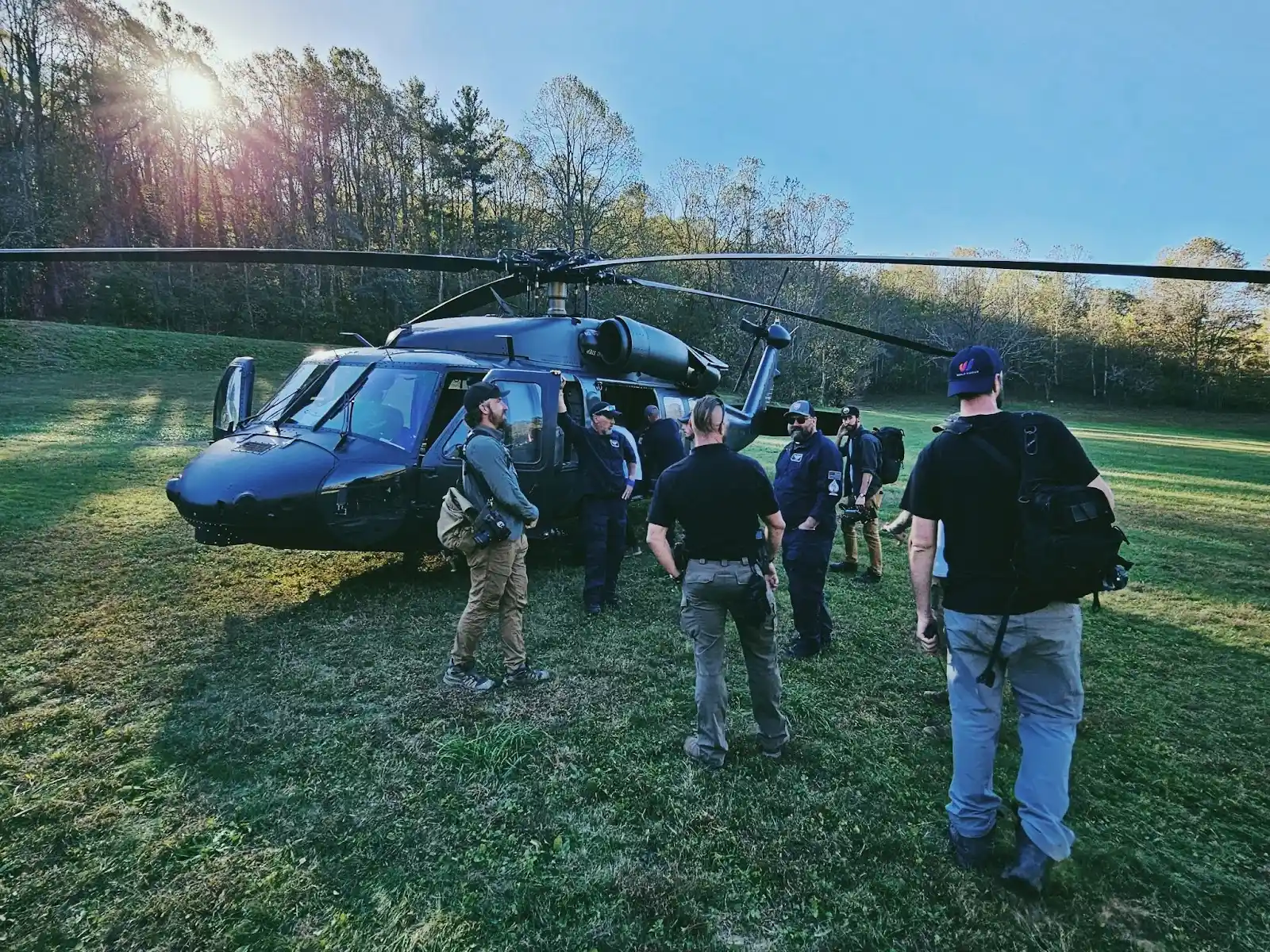
Two months ago, Hurricane Helene ravaged North Carolina, leaving a trail of devastation in its wake. The disaster claimed over 230 lives and caused damages exceeding $53 billion. The hurricane’s impact crippled infrastructure across the region, leaving thousands disconnected from essential communication networks. In response, World Mobile, a pioneer in Decentralized Physical Infrastructure Networks (DePIN), stepped in with a transformative blockchain-based solution. At the heart of World Mobile’s intervention were its revolutionary AirNodes - blockchain-powered cellular nodes that deliver connectivity directly to users’ devices. These nodes were swiftly deployed to the hardest-hit areas using helicopters provided by Charles Hoskinson, the visionary behind Ethereum and Cardano.
At the heart of World Mobile’s intervention were its revolutionary AirNodes - blockchain-powered cellular nodes that deliver connectivity directly to users’ devices. These nodes were swiftly deployed to the hardest-hit areas using helicopters provided by Charles Hoskinson, the visionary behind Ethereum and Cardano.

Within hours, the AirNodes restored vital communication in regions left isolated by traditional network failures. Survivors within a one-mile radius gained the ability to call emergency services, reconnect with loved ones, and access crucial online resources.
AirNodes utilize a backhaul system to convert internet connections into cellular coverage. Typically, backhaul options include fiber optics and satellite technology. However, in the wake of Hurricane Helene, where fiber infrastructure was destroyed, satellite backhaul proved indispensable. By leveraging Starlink’s satellite connectivity, World Mobile converted satellite signals into local cellular coverage. This innovative and scalable approach ensured that survivors regained communication capabilities when it was most critical.
Micky Watkins, CEO of World Mobile, emphasized the importance of the effort:
“We are committed to supporting communities when they need us the most. The rapid deployment of our DePIN network in the aftermath of Hurricane Helene demonstrates the vital role that innovative connectivity solutions can play in disaster recovery.”
The mission’s success and its transformative impact are chronicled in the documentary Connecting the Disconnected, which premiered under the leadership of Web3 advocate Mario Nawfal. The film highlights how blockchain and decentralized networks are ushering in a new era of disaster response. World Mobile’s scalable, resilient approach underlines the immense potential of DePIN technology to reshape humanitarian efforts globally.
Driving Broader Transformation in Telecom
While the Helene relief effort demonstrates World Mobile’s immediate impact, the company’s vision extends far beyond disaster recovery. With over 500,000 daily users, World Mobile’s decentralized network is gaining traction worldwide. AirNode sales, in particular, have been remarkably successful, with recent sales events selling out in under three minutes. Operators of these nodes stand to earn up to $1,000 monthly, showcasing the profitability and community-driven ethos of the platform.
As the $1.7 trillion telecom industry grapples with inefficiencies, centralization, and transparency challenges, World Mobile’s decentralized approach offers a powerful alternative. By empowering users, prioritizing data privacy, and fostering community ownership, the company is redefining the future of global communication. Hurricane Helene’s relief efforts mark just the beginning of World Mobile’s journey to create a fairer, more efficient telecom ecosystem fueled by blockchain and decentralized technology.

Pooja Lodwal is a skilled crypto writer with three years of experience in blockchain and digital currencies. She simplifies complex topics, making cryptocurrency easy to understand for all readers. Whether it’s Bitcoin, altcoins, NFTs, or DeFi, she breaks down the latest trends in a clear and engaging way. She stays updated on market news, price changes, and emerging developments to provide valuable insights. Her articles help both beginners and experienced investors navigate the ever-changing crypto landscape. Pooja believes in blockchain’s potential to transform the future of finance and is passionate about sharing her knowledge. Her writing is simple, informative, and accessible, ensuring that even newcomers can grasp key concepts with ease. By breaking down complicated terms, she makes learning about crypto enjoyable. Through her work, Pooja continues to educate and inspire readers, helping them stay informed about the exciting world of digital assets.
8 months ago
Blockchain technology news

8 months ago
Bitcoin news updates

8 months ago
Bitcoin market trends

8 months ago
Crypto news for beginners

8 months ago
Cardano news

8 months ago
Crypto news and analysis

8 months ago
Cryptocurrency regulation updates

8 months ago
Ripple news

8 months ago
Stablecoin news

8 months ago
Bitcoin news updates
